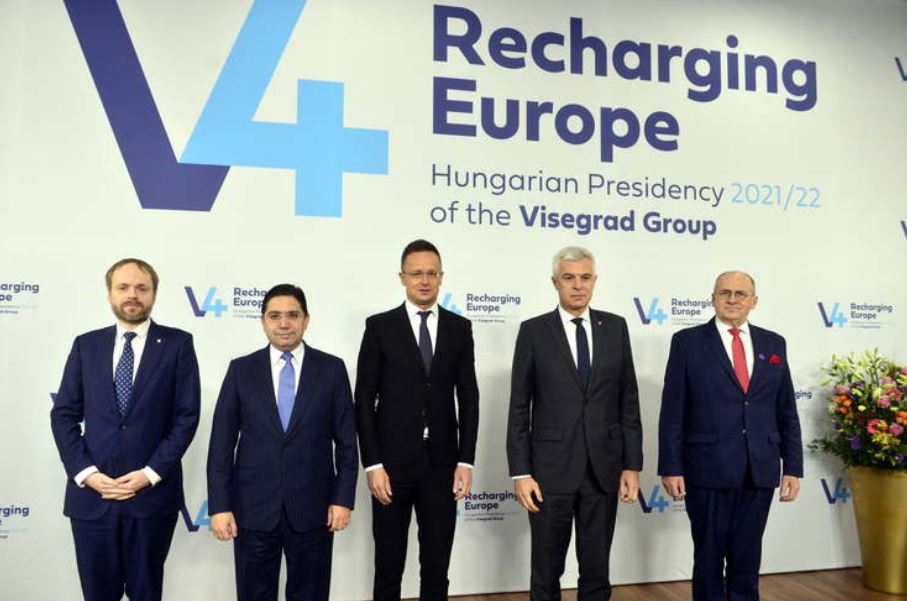By: V4 Agency
Migratory pressure from the Sahel region entails a serious security risk for the European Union even in the short term, and it is therefore necessary to support the strengthening of stability in North Africa, Hungarian Minister of Foreign Affairs and Trade Peter Szijjarto said at the meeting of the foreign ministers of Visegrad Group (V4) countries and Morocco.
In the opening remarks of the ministry press statement, the Hungarian foreign minister praised the co-operation between the Visegrad Group countries and their joint efforts that prevented the introduction of mandatory EU resettlement quotas. “Had we not shown strength and unity, there would be tens of thousands of illegal migrants here in Central Europe today,” the minister pointed out.
He stressed that today, the continent is under unprecedented migratory pressure emanating from three directions simultaneously, and noted that the issue of mechanisms for distributing arrivals or mandatory quotas, “is still on the agenda in Brussels, although they are now trying to apply different terms”. He emphasized that Central European countries share the position that help needs to be provided locally at the source of the problem and that cooperation with countries that can contribute to extending the European defence line as far from the bloc as possible is indispensable.
The migratory pressure on Europe from Africa “has always caused a headache” and that will intensify in the coming months as the root causes continue to worsen, Peter Szijjarto said. Armed conflicts, terrorism, economic challenges are becoming more severe in some areas of Africa, and the coronavirus pandemic has further exacerbated the situation, he said.
He pointed out that vaccination rates are extremely low in many countries of the neighbouring continent, which supports the formation of new mutant variants. This factor combined with the migratory waves is a serious health risk to Europe, so stopping illegal migration on the southern route is gaining even more significance. The foreign minister said that twelve terror organisations are active in the Sahel region, the security situation is deteriorating, and some surveys show that 70 per cent of the population wants to leave the region.
He explained that Europe’s security now depends more than ever on the North African region, which is a significant line of defence, and its strength depends on the stability of the states in the region. Morocco is a key country which has already stopped hundreds of thousands of migrants on its territory. The EU should therefore give all possible support for the protection of the country’s borders and economic development, and should abandon statements which could be interpreted as an invitation, he said. Mr Szijjarto highlighted that “A strong, stable Morocco capable of stopping migratory waves and defending its own borders is in the fundamental security interest of Europe.”
Moroccan Foreign Minister Nasser Burita spoke about the importance of developing cooperation to address common challenges, such as the fight against terrorism, illegal immigration and organised crime. He emphasized that his country was seeking to diversify its partnership within the EU.

